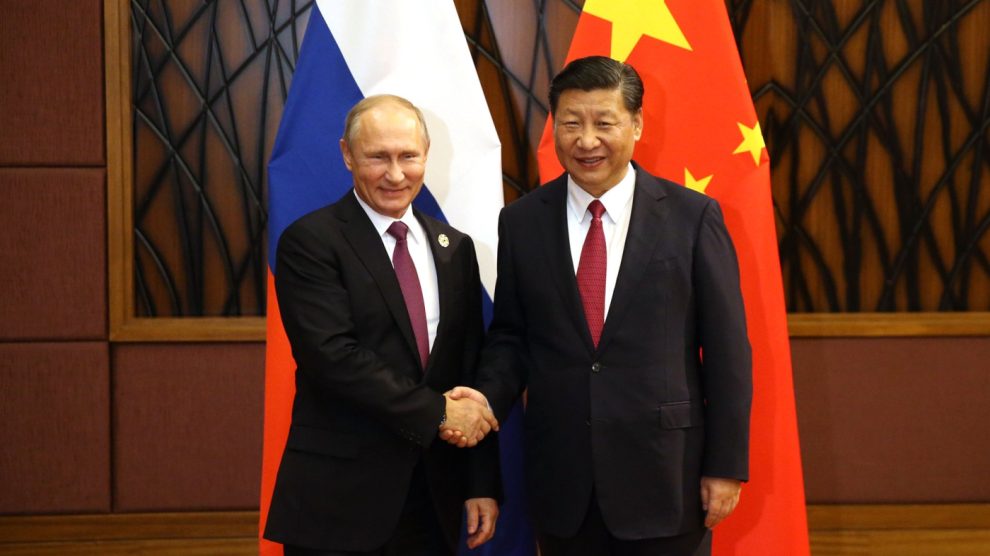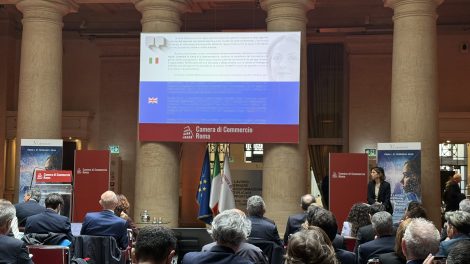The report is in. As anticipated by Decode39, the Italian Parliament’s Intelligence Committee released its annual paper. One of the key issues it explores is the autocracies’ influence campaigns, which, according to the authors, risk “polluting and distorting the public debate in Italy and in Western countries.”
- How? “Editing and disseminating fake news, social media campaigns and the use of trolls are establishing themselves as sophisticated and pervasive tools of influence by Russia and other state actors,” such as China.
Shields up. The Committee points out that Italy is poorly equipped to defend itself against such infowars. The country shows “a substantial weakness in its interventions to counter disinformation and the various forms of interference.”
- This is “a clear deficit and delay” compared to the commitments, instruments, strategies and measures other countries have already implemented, reads the report, which calls to bolster Italy’s defences.
Let’s watch out. The Committee’s President, Adolfo Urso, recently sent a letter to the Presidents of the Senate and the Chamber of Deputies, Elisabetta Casellati and Roberto Fico. He warned them of “possible external interference aimed at influencing the election campaign” and stressed the need for his team to remain fully operational and ready to act throughout the summer break.
Context is key. Following the fall of Mario Draghi’s government, Italians are slated to elect their next Parliament on September 25. They’ve also been worrying about foreign interference, as some elements have lined up to substantiate that fear.
- Just yesterday, former Russian President Dmitry Medvedev was accused of meddling in the country’s public discourse by calling on Europeans to “punish” their governments through the polls “for their blatant stupidity.”
- Russian shadows have been looming over PM Draghi’s fall, which was caused by the three political parties historically closest to the Kremlin.
- Reports emerged about the direct contacts between Russian government officials and Matteo Salvini’s League; the formers allegedly expressed their interest in the latter’s opposition to the government in hopes of destabilising it.
Russia’s interest. Due to its history and geographical location, write the Intelligence Committee members, Italy could be used as a “picklock” to force the Euro-Atlantic front. Damaging the country “can also weaken its projection in the wider Mediterranean, so as to favour the growing Russian strategic presence in Northern Africa, the Sahel and the Balkans.”
- Authoritarian regimes employ disinformation and interference as a means of hybrid warfare “to condition liberal democracies and their electoral and decision-making processes” and “to manipulate information itself through propaganda and the dissemination of anti-Western rhetoric.”
- The Committee has long been monitoring this issue, which “has grown to even more worrying dimensions” following Russia’s invasion of Ukraine.
China, too, is trying to pollute and distort the public debate in Italy and other Western countries, reads the report, which delves deeper into the role of the State Council Information Office of the People’s Republic of China. “For the past ten years, [it has] been investing enormous resources in information warfare to conduct operations at a global level.”
- Confucius Institutes, which China supports in universities around the globe, are a vehicle for “invasive penetration” as well as beacons of soft power. Beijing uses them to seek knowledge, research and training – assets Italy “must learn to protect from predatory takeovers.”
- Chinese information agencies – which are directly traceable to the Chinese Communist Party – also contribute to spreading propaganda, add the authors, including through agreements and relations with foreign news outlets to convey content that’s “objectively unbalanced” in favour of the regime.
The disinfo assembly line. This strategy was made evident with the partnerships between Italian and Chinese media. It was analysed by the Rome-based International Affairs Institute, which produced a report (PDF) on the breadth and capillarity of these agreements.
- The shift in communication strategies: instead of conducting state-led operations, Chinese authorities now package and entrust content to independent agencies, write the authors. “This has led to the proliferation of a market of so-called fake news, or ‘industrialised disinformation,’ and to computational propaganda.”
- Taiwan and infowar ops. The importance of Taiwan’s fate transcends its geographic area and touches the West, note the authors. Beijing directly challenged Taipei “to demonstrate the economic, technological and military superiority of its regime” as well as “an alternative strategic vision, questioning the values of democracy and respect for human rights, the basis of our societies.”





